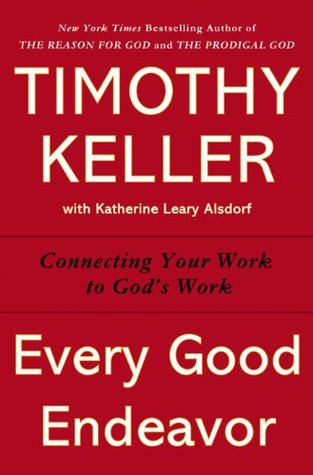More on this book
Community
Kindle Notes & Highlights
God made the world not as a warrior digs a trench but as an artist makes a masterpiece.
We share in doing the things that God has done in creation—bringing order out of chaos, creatively building a civilization out of the material of physical and human nature, caring for all that God has made. This is a major part of what we were created to be.
Simple physical labor is God’s work no less than the formulation of theological truth. Think
All work has dignity because it reflects God’s image in us, and also because the material creation we are called to care for is good.
As we have seen, this means that Christians cannot look down on labor involving more intimate contact with the material world. Caring for and cultivating this material world has worth, even if it means cutting the grass. This also means that “secular” work has no less dignity and nobility than the “sacred” work of ministry.
We have an excellent foundation if we understand the goodness of creation and the dignity of work. We work in a wondrous world that is designed at least partly for our pleasure. The author of Genesis tells us we should experience awe as we stand before the richness of the creation, for it teems with life. God seems to delight in diversity and creativity.
God owns the world, but he has put it under our care to cultivate it. It is definitely not a mandate to treat the world and its resources as if they are ours to use, exploit, and discard as we wish.
If we are to be God’s image-bearers with regard to creation, then we will carry on his pattern of work. His world is not hostile, so that it needs to be beaten down like an enemy. Rather, its potential is undeveloped, so it needs to be cultivated like a garden. So we are not to relate to the world as park rangers, whose job is not to change their space, but to preserve things as they are. Nor are we to “pave over the garden” of the created world to make a parking lot. No, we are to be gardeners who take an active stance toward their charge. They do not leave the land as it is. They rearrange
...more
We are not to choose jobs and conduct our work to fulfill ourselves and accrue power, for being called by God to do something is empowering enough. We are to see work as a way of service to God and our neighbor, and so we should both choose and conduct our work in accordance with that purpose.
The question regarding our choice of work is no longer “What will make me the most money and give me the most status?” The question must now be “How, with my existing abilities and opportunities, can I be of greatest service to other people, knowing what I do of God’s will and of human need?”
Lewis shows us that we can either build a better mousetrap (taller building, faster computer, cheaper airline, more luxurious hotel) out of interest in excellence and service to human beings, or we can do so in a race to move our organization and ourselves into a position to look down on others. The latter leads to ethical shortcuts and the oppression of those who get in our way.
It is often hard to get Christians to see that God is willing not just to use men and women in ministry, but in law, in medicine, in business, in the arts. This is the great shortfall today.”117
The vast implications of this gospel worldview—about the character of God, the goodness of the material creation, the value of the human person, the fallenness of all people and all things, the primacy of love and grace, the importance of justice and truth, the hope of redemption—affect everything, and especially our work.


